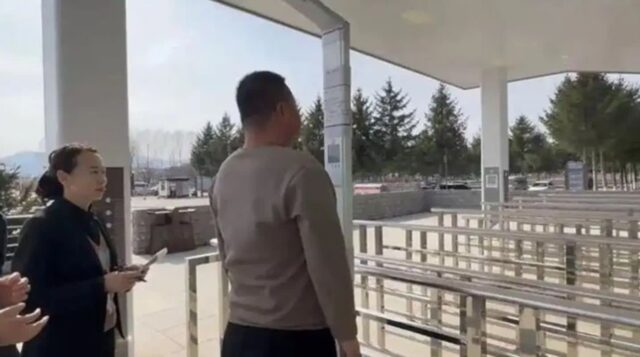Japanese Rocket Explodes Mid-Air 5 Seconds After Launch
Stock Prices for Canon, the Major Shareholder of Space One, Plummet
South Korea Also Steps Up to Nurture Private Space Industry

On the 13th, local media reported that Cairos, a small solid-fuel rocket made by the Japanese private space company Space One, exploded in mid-air shortly after launch. The rocket launch, which drew significant attention from the Japanese public, was broadcast live. Cairos, the first rocket developed by a private Japanese company, has sparked disappointment throughout Japan due to its explosion.
According to leading Japanese media outlets such as Nihon Keizai Shimbun, Kyodo News, and NHK, Space One launched Cairos from the private rocket launch site “Space Port Kii” at 11:01 AM. The launch site is in Kushimoto Town, Wakayama Prefecture, in western Honshu, Japan.
Cairos, the embodiment of the Japanese private company’s dreams, disintegrated mid-air within 5 seconds of launch with a massive explosion. The explosion caused a fire in a nearby forest, and rocket debris was scattered across the launch site. However, local media reported no casualties from the blast, and immediate efforts were made to quash the fire and prevent significant damages. Space One is currently conducting a detailed investigation into the explosion.
The rocket, named Cairos, was inspired by the Greek god of time. Cairos is a small rocket that uses solid fuel, measuring 18m long and weighing 23 tons. It is one-third the height and one-tenth the weight of Japan’s traditional rockets, maximizing efficiency with its compact size and easy-to-store solid fuel.

The private space company that created this rocket, “Space One,” was founded in 2018 with investments from Canon Electronics, IHI Aerospace (a subsidiary of IHI), Shimizu Corporation, and the Japan Policy Investment Bank.
Space One is actively conducting research in anticipation of the expanding global market for small satellite launches. Canon Electronics is supplying parts for the rocket’s drive system and electronic control, and IHI Aerospace is reportedly responsible for developing parts related to the rocket’s engine.
However, Space One’s rocket development was not so smooth sailing. In 2021, due to delays in parts procurement and other issues, the planned launch was postponed four times. Furthermore, on March 9, Space One had to postpone the launch for the fifth time due to a safety issue caused by an unidentified ship entering the maritime boundary area. Despite these challenges, they successfully launched on March 13, but the rocket exploded 5 seconds after launch, falling short of expectations.
The original plan for Cairos was to reach an altitude of 500km (approximately 311 miles) 50 minutes after launch and to deploy a satellite.
Cairos’s failed launch has led to a significant drop in the stock prices of Canon, Space One’s major shareholder.

Following Japan, South Korea is also showing efforts to support the development of technology in the private sector of the space industry.
On the 13th, the “Republic of Korea Space Industry Cluster Inauguration” event was held in Sacheon, Gyeongsangnam-do. President Yoon Suk Yeol attended the event, showing the government’s interest in the space industry. In particular, Lee Jang Woo, the mayor of Daejeon, announced his plans to make Daejeon a leading “Space City.” At the event, the mayor introduced the city’s role in establishing critical infrastructure for the Daejeon Space Industry Cluster and introduced future development plans and visions.
The mayor’s main development plan presented at the event included the establishment of a global space education network hub centered around the Space Technology Innovation Talent Training Center. He also announced his plans to promote the Daejeon Satellite (SAT) project to encourage the creation of a thriving private space industry. Furthermore, he expressed his desire to build a new space R&D town and establish a growth ecosystem of the space industry by developing support facilities for space companies in the national industrial complex of aerospace and nano semiconductors in Gyochon-dong.
In addition, KAI (Korea Aerospace Industries) promised to provide more than 10 billion won (approximately $8.3 million) in funds this year due to reasons such as price increases and announced plans to ease the conditions of emergency loans. In response to KAI’s decision, numerous small and medium-sized domestic companies stated that they would investigate the various problems caused by the collapse of the global aerospace industry supply chain and lead the enhancement of production capacity for the sustainable growth of the Korean aerospace industry.
Song Ho Cheol, the Director of KAI Operations, expressed hope for the aerospace industry to overcome the current crisis, saying, “Although the management environment of the domestic and international aerospace industry is challenging at the moment, we will be able to prepare for the second growth of the domestic aerospace industry through expansion of exports of complete aircraft and the recovery of aircraft business.”










Most Commented